 Last year, audiences watched in disbelief as the South African sign language interpreter for Nelson Mandela’s memorial service earned the nickname “the fake interpreter.” Insulted, but not entirely surprised, the global deaf community used this public example to bring attention to an unfortunately common problem. The agencies which provide interpreters, even for large televised events, aren’t always looking out for the best interest of the communities they serve.
Last year, audiences watched in disbelief as the South African sign language interpreter for Nelson Mandela’s memorial service earned the nickname “the fake interpreter.” Insulted, but not entirely surprised, the global deaf community used this public example to bring attention to an unfortunately common problem. The agencies which provide interpreters, even for large televised events, aren’t always looking out for the best interest of the communities they serve.
Applying to an Interpreting Agency
 When interpreting agencies assign unqualified interpreters to jobs, they are denying equal access– it happens at hospitals, police stations, and court rooms alike. From the very start of our careers, interpreters should aware that these agencies are unethical, and that it is our professional responsibility to ensure access for the deaf is provided.
When interpreting agencies assign unqualified interpreters to jobs, they are denying equal access– it happens at hospitals, police stations, and court rooms alike. From the very start of our careers, interpreters should aware that these agencies are unethical, and that it is our professional responsibility to ensure access for the deaf is provided.
Novice interpreters graduate from their Interpreter Training Program (ITP) eager to begin serving the deaf community. For many, this means moving to a large metropolitan area, a place where they may not be familiar with the community, the neighborhoods, or the job opportunities available. When I first moved to New York City, I just wanted to get right to work! I have learned that professional responsibility starts right here, at this juncture. If you recently relocated or graduated from an ITP program, there are ways to ensure you are working for a reputable agency that cares about the quality of the interpreters that they provide to the deaf community.

Looking for agencies that are Deaf or sign language interpreter owned and operated is a good first step. People who live and work in the deaf community understand the importance of matching a deaf consumer with a skilled qualified interpreter. They can recognize any issues which might arise between interpreters and clients, and advocate for the deaf consumer when needed. Multiple language interpreting agencies are often unfamiliar with deaf specific issues, making them less qualified to mediate these types of cultural misunderstandings.
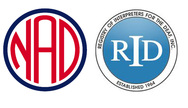 Research agencies to ensure they adhere to RID/NAD standards. The Registry of Interpreters for the Deaf (RID) is a professional organization which strives to provide consistent and ethical sign language interpreters. The National Association of the Deaf (NAD) is a civil rights organization by and for deaf people, representing the interest of deaf and hard of hearing individuals across the United States. Together RID and NAD have developed a Code of Professional Conduct, a set standard practices and expectations for interpreters that protects the rights of deaf consumers. It is crucial that any agency an ASL interpreter applies to is not only familiar with, but in strict adherence of these policies. It shows respect for deaf consumers and a desire to provide the highest quality ethical interpreting services.
Research agencies to ensure they adhere to RID/NAD standards. The Registry of Interpreters for the Deaf (RID) is a professional organization which strives to provide consistent and ethical sign language interpreters. The National Association of the Deaf (NAD) is a civil rights organization by and for deaf people, representing the interest of deaf and hard of hearing individuals across the United States. Together RID and NAD have developed a Code of Professional Conduct, a set standard practices and expectations for interpreters that protects the rights of deaf consumers. It is crucial that any agency an ASL interpreter applies to is not only familiar with, but in strict adherence of these policies. It shows respect for deaf consumers and a desire to provide the highest quality ethical interpreting services.
When applying to an interpreting agency, find out how they treat their employees and pay careful attention to the hiring process. It is important that the agency have an accurate interview and screening process, which will include assessment by a deaf or hearing interpreter to appropriately evaluate each new interpreter’s skill set. A quality interpreting agency will know their interpreter’s strengths and weaknesses, and distribute assignments accordingly.
Seek out agencies that follow community standards and protocol to ensure interpreters are taken care of. Assignment details should provide as much depth as po
ssible to help prepare interpreters for any demands that may arise. An agency which demonstrates concern for its’ interpreters will work within the Demand-Control schema to reduce occupational stressors, allowing interpreters to perform at the highest possible level. Assignment details are so critical for interpreters because we are synthesizing conversations based on a specific situation. If we do not have the correct information, or have an incomplete picture, we will be doing a disservice to the deaf consumer.

One difference between spoken language interpreters and sign language interpreters is team interpreting. When interpreting a verbal language into a physical one, ASL interpreters become prone to both physical and mental fatigue. After one hour of interpreting alone, even the best sign language interpreter will be providing a lower quality of service. ASL interpreters should make sure any agency they apply to regularly provides team interpreting for assignments. Not every situation requires a team of interpreters, but many do and it’s best to look for agencies that are ready to provide interpreters with support in the field.
 Before you sign a contract with any agency, be sure you read it very thoroughly and that you agree to the terms. If you find any questionable items in the contract, bring it back to the agency to discuss how your needs can be met. Look for the following items: a cancellation policy that ensures pay for the interpreter if the assignment is cancelled without 24-48 hours notice; a policy that states payment will be made within 14-45 days of an assignment; and pay that follows the cost of living standards for your area. Whether you live in a city or rural area has a big impact on your income. Learn the standard rates for non-certified and certified ASL interpreters in your city, and seek out an agency that provides all interpreters a fair hourly wage.
Before you sign a contract with any agency, be sure you read it very thoroughly and that you agree to the terms. If you find any questionable items in the contract, bring it back to the agency to discuss how your needs can be met. Look for the following items: a cancellation policy that ensures pay for the interpreter if the assignment is cancelled without 24-48 hours notice; a policy that states payment will be made within 14-45 days of an assignment; and pay that follows the cost of living standards for your area. Whether you live in a city or rural area has a big impact on your income. Learn the standard rates for non-certified and certified ASL interpreters in your city, and seek out an agency that provides all interpreters a fair hourly wage.
When working for an organization that understands the deaf community, and truly cares about the quality of services they provide, interpreters will find they are better supported and able to focus. Look for agencies which emphasize the RID/NAD Code of Professional Conduct and have connections to deaf culture. At the end of the day, the people who suffer most when unqualified interpreters are assigned to jobs are deaf consumers. If an interpreter lacks the skill set to perform a specific task, and the agency does not recognize this, the deaf person is denied access. By partnering with ethical, consumer-focused agencies, sign language interpreters choose to support professionally responsible business practices. Beyond that, they choose to support equal access– and that’s what this job is all about!
_____
If you are seeking a professional ASL interpreting mentor, my services are available. It is critical for interpreters to continuously develop their professional skills at every step of their career. LC Interpreting Services is deeply involved with the deaf community, focused on deaf consumers, and passionate about providing equal access in all situations. If you are looking for career guidance and information about reputable agencies, LCIS would be happy to help!
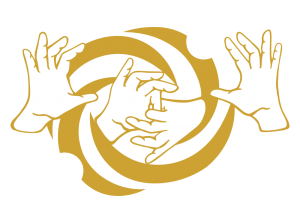



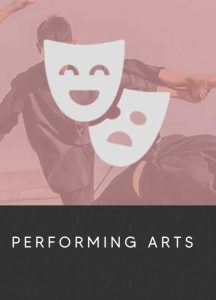

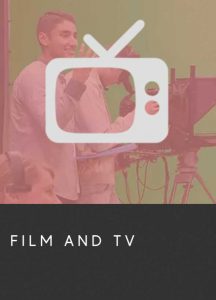





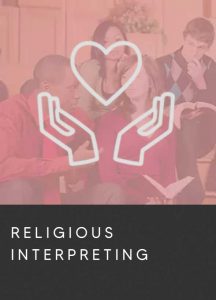
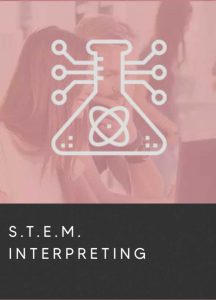
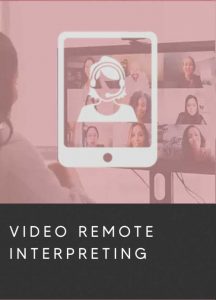
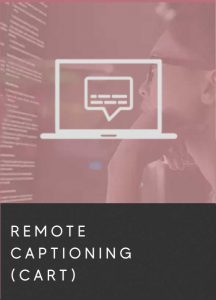

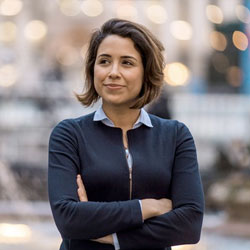 In October of 2012, following the Hurricane Sandy press conferences, I was stunned to find YouTube clips of myself interpreting for NYC Mayor Michael Bloomberg spreading across social media. I assure you that becoming a viral video is not something any person can prepare for— it was overwhelming and quite disillusioning. When all was said and done, the biggest lesson I took away from the experience is that mainstream hearing society knows next to nothing about deafness, Deaf culture, American Sign Language, or ASL interpreters. I realized that the media exposure afforded an opportunity to help bring more attention to these topics, and this has been a primary focus of my life ever since.
In October of 2012, following the Hurricane Sandy press conferences, I was stunned to find YouTube clips of myself interpreting for NYC Mayor Michael Bloomberg spreading across social media. I assure you that becoming a viral video is not something any person can prepare for— it was overwhelming and quite disillusioning. When all was said and done, the biggest lesson I took away from the experience is that mainstream hearing society knows next to nothing about deafness, Deaf culture, American Sign Language, or ASL interpreters. I realized that the media exposure afforded an opportunity to help bring more attention to these topics, and this has been a primary focus of my life ever since.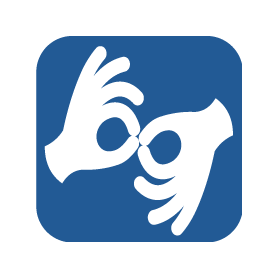 Not only do I strive to educate through my writing, but also through my company. I work with hearing businesses all the time to help make their organization more culturally competent for deaf employees and customers. LCIS makes the process of securing interpreters comprehensive and we offer literature on working with both deaf individuals and sign language interpreters. By working very closely with deaf consumers, we assess the needs of the individual and help advocate for any accommodations that they feel are necessary. Deaf interpreters are assigned whenever possible and we make sure to educate organizations about their importance. At LCIS, our ASL instructors are Deaf, as are the corporate Cultural Competency trainers, and any ASL coaches who work on film or TV sets that feature deafness or sign language. We could not do any of the work that we do without deaf people!
Not only do I strive to educate through my writing, but also through my company. I work with hearing businesses all the time to help make their organization more culturally competent for deaf employees and customers. LCIS makes the process of securing interpreters comprehensive and we offer literature on working with both deaf individuals and sign language interpreters. By working very closely with deaf consumers, we assess the needs of the individual and help advocate for any accommodations that they feel are necessary. Deaf interpreters are assigned whenever possible and we make sure to educate organizations about their importance. At LCIS, our ASL instructors are Deaf, as are the corporate Cultural Competency trainers, and any ASL coaches who work on film or TV sets that feature deafness or sign language. We could not do any of the work that we do without deaf people! Last year, audiences watched in disbelief as the South African sign language interpreter for Nelson Mandela’s memorial service earned the nickname “the fake interpreter.” Insulted, but not entirely surprised, the global deaf community used this public example to bring attention to an unfortunately common problem. The agencies which provide interpreters, even for large televised events, aren’t always looking out for the best interest of the communities they serve.
Last year, audiences watched in disbelief as the South African sign language interpreter for Nelson Mandela’s memorial service earned the nickname “the fake interpreter.” Insulted, but not entirely surprised, the global deaf community used this public example to bring attention to an unfortunately common problem. The agencies which provide interpreters, even for large televised events, aren’t always looking out for the best interest of the communities they serve. When interpreting agencies assign unqualified interpreters to jobs, they are denying equal access– it happens at hospitals, police stations, and court rooms alike. From the very start of our careers, interpreters should aware that these agencies are unethical, and that it is our professional responsibility to ensure access for the deaf is provided.
When interpreting agencies assign unqualified interpreters to jobs, they are denying equal access– it happens at hospitals, police stations, and court rooms alike. From the very start of our careers, interpreters should aware that these agencies are unethical, and that it is our professional responsibility to ensure access for the deaf is provided.
 Research agencies to ensure they adhere to RID/NAD standards. The Registry of Interpreters for the Deaf (RID) is a professional organization which strives to provide consistent and ethical sign language interpreters. The National Association of the Deaf (NAD) is a civil rights organization by and for deaf people, representing the interest of deaf and hard of hearing individuals across the United States. Together RID and NAD have developed a
Research agencies to ensure they adhere to RID/NAD standards. The Registry of Interpreters for the Deaf (RID) is a professional organization which strives to provide consistent and ethical sign language interpreters. The National Association of the Deaf (NAD) is a civil rights organization by and for deaf people, representing the interest of deaf and hard of hearing individuals across the United States. Together RID and NAD have developed a 
 Before you sign a contract with any agency, be sure you read it very thoroughly and that you agree to the terms. If you find any questionable items in the contract, bring it back to the agency to discuss how your needs can be met. Look for the following items: a cancellation policy that ensures pay for the interpreter if the assignment is cancelled without 24-48 hours notice; a policy that states payment will be made within 14-45 days of an assignment; and pay that follows the cost of living standards for your area. Whether you live in a city or rural area has a big impact on your income. Learn the standard rates for non-certified and certified ASL interpreters in your city, and seek out an agency that provides all interpreters a fair hourly wage.
Before you sign a contract with any agency, be sure you read it very thoroughly and that you agree to the terms. If you find any questionable items in the contract, bring it back to the agency to discuss how your needs can be met. Look for the following items: a cancellation policy that ensures pay for the interpreter if the assignment is cancelled without 24-48 hours notice; a policy that states payment will be made within 14-45 days of an assignment; and pay that follows the cost of living standards for your area. Whether you live in a city or rural area has a big impact on your income. Learn the standard rates for non-certified and certified ASL interpreters in your city, and seek out an agency that provides all interpreters a fair hourly wage. Picture this: you are a little kid growing up, constantly discovering incredible new things about the world. Now imagine being surrounded every day by people who do not talk to you, tell you stories, or answer your millions of questions. These people are your own parents and siblings. You all live in the same home, yet they hardly communicate with you. They are not able to teach you, guide you, or to provide comforting words when you need them. In fact, they mostly avoid you. This is the experience of many deaf children.
Picture this: you are a little kid growing up, constantly discovering incredible new things about the world. Now imagine being surrounded every day by people who do not talk to you, tell you stories, or answer your millions of questions. These people are your own parents and siblings. You all live in the same home, yet they hardly communicate with you. They are not able to teach you, guide you, or to provide comforting words when you need them. In fact, they mostly avoid you. This is the experience of many deaf children. So, instead of accepting the perfect gift they have been given and embracing the opportunity to explore deaf communication, hearing parents might immediately label their beautiful deaf newborn as defective. They might hunt for a way to “fix” their baby, or try teaching their child to communicate using sound like “normal” people. Or maybe they simply abandon hope that they’ll ever be able to relate to their deaf child at all. This truly breaks my heart.
So, instead of accepting the perfect gift they have been given and embracing the opportunity to explore deaf communication, hearing parents might immediately label their beautiful deaf newborn as defective. They might hunt for a way to “fix” their baby, or try teaching their child to communicate using sound like “normal” people. Or maybe they simply abandon hope that they’ll ever be able to relate to their deaf child at all. This truly breaks my heart. Growing up the only deaf person in your household can be extremely isolating. If your family chooses not to learn sign language, it is hard to express yourself comfortably. For my mother, the opportunity to communicate with her parents and siblings just felt like it came too late. After a lifetime of feeling excluded from your own family, believing they never really got to know you, how do you make up for lost time? What is there to talk about?
Growing up the only deaf person in your household can be extremely isolating. If your family chooses not to learn sign language, it is hard to express yourself comfortably. For my mother, the opportunity to communicate with her parents and siblings just felt like it came too late. After a lifetime of feeling excluded from your own family, believing they never really got to know you, how do you make up for lost time? What is there to talk about? Deafness doesn’t have to be isolating. Since I was raised in a deaf family, I can tell you: deafness is nothing to be afraid of! The ability to hear sound is not what makes a person whole. It is not what gives a person their personality. The ability to hear sound is not what determines a person’s intelligence, and it doesn’t have to limit one’s life. Perhaps not enough hearing people take note of the deaf community members living happy lives around them. There are plenty of successful business owners, artists, and athletes who use sign language to communicate.
Deafness doesn’t have to be isolating. Since I was raised in a deaf family, I can tell you: deafness is nothing to be afraid of! The ability to hear sound is not what makes a person whole. It is not what gives a person their personality. The ability to hear sound is not what determines a person’s intelligence, and it doesn’t have to limit one’s life. Perhaps not enough hearing people take note of the deaf community members living happy lives around them. There are plenty of successful business owners, artists, and athletes who use sign language to communicate. Sign language is the most natural form of communication for deaf people around the globe.
Sign language is the most natural form of communication for deaf people around the globe.  I have 10 years experience working with toddlers and I am professionally certified in all levels of ASL, including baby signs.
I have 10 years experience working with toddlers and I am professionally certified in all levels of ASL, including baby signs.  Valentines day doesn’t just have to be about romantic love– love can be between friends and family, too. It is just a nice day to remind people you care about them, no heart-shaped box required.
Valentines day doesn’t just have to be about romantic love– love can be between friends and family, too. It is just a nice day to remind people you care about them, no heart-shaped box required. I am offering a deal on partner ASL lessons from now through Valentines day. For $75, I invite you and a friend to discover the silent world of American Sign Language together. In your one hour love-themed lesson, we will cover some basic signs and fun phrases you can both use for years to come.
I am offering a deal on partner ASL lessons from now through Valentines day. For $75, I invite you and a friend to discover the silent world of American Sign Language together. In your one hour love-themed lesson, we will cover some basic signs and fun phrases you can both use for years to come.  One of my favorite parts of being an interpreter is that it’s an extremely social line of work. Aside from the deaf clients, I also get the opportunity to interact with many other interpreters, and those who are considering sign language interpreting as a career. Novice interpreters enter this job full of questions, since the interpreting field has changed so much even in the past 25 years. The want to know:
One of my favorite parts of being an interpreter is that it’s an extremely social line of work. Aside from the deaf clients, I also get the opportunity to interact with many other interpreters, and those who are considering sign language interpreting as a career. Novice interpreters enter this job full of questions, since the interpreting field has changed so much even in the past 25 years. The want to know: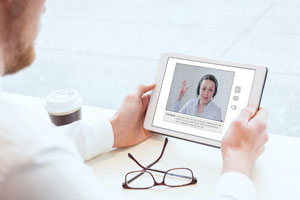 Gone are the days of the “conduit/ machine model” where interpreters were expected to be robot-like; we now assume a far more engaged role while in the field. I often explain that interpreting is similar to acting, in that you take on the character of all the clients involved. I have different role in while interpreting in a doctors office than when I am interpreting a concert, or emergency press conference. Every day I go to work and I get to become multiple people. I get to take on new personas, facilitate personal conversations, and help people understand each other. As an interpreter, you learn to assume the delicate role of both communicator, and cultural mediator. You need to know the language, convey perspectives, and be able to work through any cultural misunderstandings that prevent accurate communication.
Gone are the days of the “conduit/ machine model” where interpreters were expected to be robot-like; we now assume a far more engaged role while in the field. I often explain that interpreting is similar to acting, in that you take on the character of all the clients involved. I have different role in while interpreting in a doctors office than when I am interpreting a concert, or emergency press conference. Every day I go to work and I get to become multiple people. I get to take on new personas, facilitate personal conversations, and help people understand each other. As an interpreter, you learn to assume the delicate role of both communicator, and cultural mediator. You need to know the language, convey perspectives, and be able to work through any cultural misunderstandings that prevent accurate communication. Being a part of the Deaf community is a must for any modern interpreter. Interpreting is a full time profession, not just a job where you clock in and clock out. You need to be more than simply ASL fluent to be a quality interpreter, since the language is always evolving. If you want to serve the community, it is important that you make Deaf friends, attend Deaf events, and become a Deaf culture ally. Like any language, ASL relies heavily on context and implication, so familiarize yourself with the subtle nuances and colloquialisms of Deaf culture. Have discussions that build upon your ASL expression (using the language) and reception (understanding the language) through professional development. Practice interpreting for your Deaf friends in informal settings so you can learn to take on the “character” of someone else. Practice in mock settings as much as possible.
Being a part of the Deaf community is a must for any modern interpreter. Interpreting is a full time profession, not just a job where you clock in and clock out. You need to be more than simply ASL fluent to be a quality interpreter, since the language is always evolving. If you want to serve the community, it is important that you make Deaf friends, attend Deaf events, and become a Deaf culture ally. Like any language, ASL relies heavily on context and implication, so familiarize yourself with the subtle nuances and colloquialisms of Deaf culture. Have discussions that build upon your ASL expression (using the language) and reception (understanding the language) through professional development. Practice interpreting for your Deaf friends in informal settings so you can learn to take on the “character” of someone else. Practice in mock settings as much as possible. Networking is critical for today’s ASL interpreters, so be prepared to meet your new colleagues! As an ASL interpreter, I find myself almost constantly engaging with other professionals. If you are just starting out in your career, find an interpreter in the area and start a dialogue. Major cities are where you will find the most demand for interpreters, or near Deaf universities like California State University, Northridge (CSUN), National Technical Institute of the Deaf (NTID), or Gallaudet. Before you relocate, make some calls, send some emails, and introduce yourself to as many working professionals as possible. Even if you plan on freelancing, it is important to work on professional development and find camaraderie with others in the field. Get involved in your local Registry of Interpreters for the Deaf (RID) chapter, attend some social events, and seek a mentor . Don’t be shy!
Networking is critical for today’s ASL interpreters, so be prepared to meet your new colleagues! As an ASL interpreter, I find myself almost constantly engaging with other professionals. If you are just starting out in your career, find an interpreter in the area and start a dialogue. Major cities are where you will find the most demand for interpreters, or near Deaf universities like California State University, Northridge (CSUN), National Technical Institute of the Deaf (NTID), or Gallaudet. Before you relocate, make some calls, send some emails, and introduce yourself to as many working professionals as possible. Even if you plan on freelancing, it is important to work on professional development and find camaraderie with others in the field. Get involved in your local Registry of Interpreters for the Deaf (RID) chapter, attend some social events, and seek a mentor . Don’t be shy!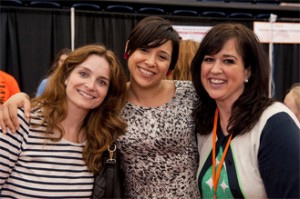 There is so much more to ASL Interpreting than simply knowing sign language. While it might seem a bit overwhelming at first, the great thing about this field is that it is full of enthusiastic, motivated individuals who are happy to help each other out. ASL interpreting is perfect for those who are seeking an emotionally rewarding profession where you get to meet and interact with people from every walk of life. Every day the job of the modern interpreter is a little different; full of challenges and opportunity for growth.
There is so much more to ASL Interpreting than simply knowing sign language. While it might seem a bit overwhelming at first, the great thing about this field is that it is full of enthusiastic, motivated individuals who are happy to help each other out. ASL interpreting is perfect for those who are seeking an emotionally rewarding profession where you get to meet and interact with people from every walk of life. Every day the job of the modern interpreter is a little different; full of challenges and opportunity for growth.





